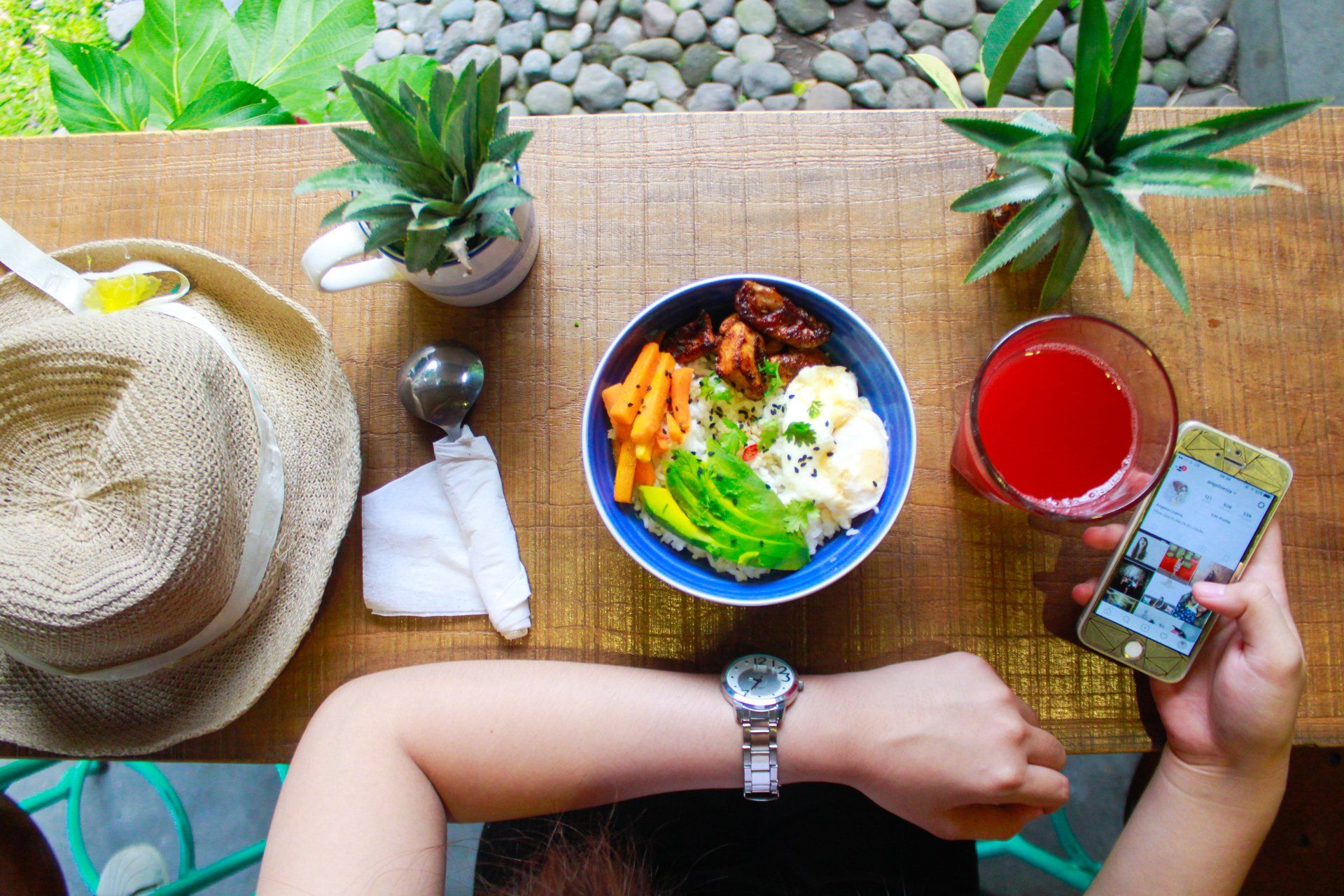I get my nutrition information from social media. That's ok right?
Influencer nutrition advice versus a dietitian's advice. Is there much difference?

In the age of social media, information about nutrition and health is just a quick search and click away. With influencers, celebrities, and self-proclaimed experts sharing their opinions, it's easy to get overwhelmed by the abundance of nutrition advice on platforms such as Instagram, TikTok, Twitter etc.
While social media can be a positive source of inspiration and motivation, it's essential to highlight the potential risks of relying solely on this information for your nutritional needs. In this blog post, I want to explore the differences between getting nutrition information from social media compared to seeking support from registered dietitians and/or registered nutritionists.
Social Media Nutrition Information: The Risks (that are easily forgotten about!)
1. Lack of Credibility: Social media platforms are open spaces where anyone can share their thoughts and opinions, regardless of their qualifications or expertise. Nutrition information on social media may come from individuals with limited or no formal education in nutrition, leading to misinformation or advice that lacks scientific basis. I always like to use the example of: if you want your sink fixing you would call on a plumber, you would not pick an influencer who has thousands of followers but zero experience in plumbing. Make it make sense!
2. Fad Diets and Misleading Claims: Social media is notorious for promoting fad diets and trendy eating patterns that promise quick fixes and miraculous results. Such diets may lack evidence-based support and could be harmful to overall health. Greens powders, detoxes or no-carb diets spring to mind!
3. Focus on Aesthetics: Some social media influencers prioritise appearance over health, promoting extreme dietary behaviors and promoting unrealistic body ideals. This can lead to disordered eating patterns and a negative impact on mental health.
4. Individual needs are dismissed: Nutrition is not a one-size-fits-all approach. People have different dietary needs based on factors such as age, gender, activity level, and health conditions. Social media advice does not take these individual variations into account and puts many individuals at risk of health complications.
Registered Dietitians: The only regulated nutrition profession across the globe!
1. Formal Education and Credentials: Registered dietitians are nutrition professionals with accredited degrees in nutrition and dietetics. They undergo rigorous training and are required to continually showcase their professional development throughout their career. Their expertise is based on evidence-based nutrition science and nothing else. This is why you can be assured if you work with a dietitian you will receive expert and accurate advice.
2. Personalised Guidance: Dietitians work with individuals to provide personalised nutrition advice tailored to their specific needs and goals. They take into account medical history, lifestyle, and dietary preferences to develop realistic and sustainable nutrition plans. Think of your favourite influencer telling you to cut out a food group because they 'feel great' and it worked for them. But what if that food group is dairy and you require increased calcium due to being Coeliac or you have a Vitamin D deficiency and you need calcium to help absorb vitamin D. Everyone is different and has different needs!
3. Emphasis on Overall Health: Unlike social media influencers who might focus solely on aesthetics, quick fixes or what sounds the 'most exciting' for their audience, registered dietitians prioritise overall health and well-being. They consider the long-term impact of dietary choices. This makes me think of the Japenese theory of making small changes which is known as 'Kaizen'. Making small changes over time will lead to ongoing or continuous improvement.
My conclusion:
Social media can be a valuable source of inspiration and connection, but when it comes to nutrition advice, it's crucial to exercise caution.
Relying solely on information from social media influencers may lead to misinformation and potentially harmful dietary choices.
For accurate, reliable, and personalised nutrition guidance, consult a registered dietitian.
If you read something online my top tip is to check where this information came from. If it was provided by a registered dietitian you can be sure it is accurate. If it is not clear where the information came from then feel free to reach out to myself or any other dietitian, who would be happy to advise you.
Written by Natalie Briggs (APD, HCPC, SENr)
Founder of The Nutrition Habit
